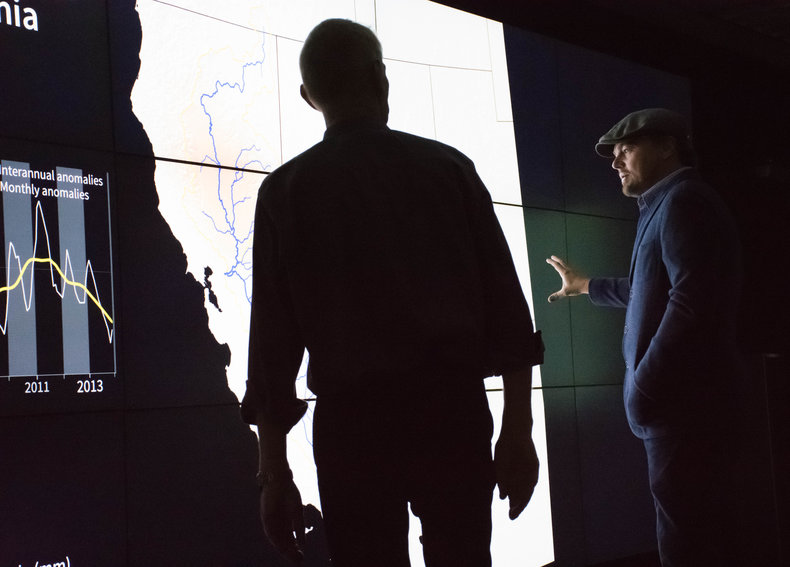
 |
A-Z | Popular | Blog | Information | Search » |
|
Information  Related Guides
Information
Key Concepts
Documents  Information
Related Topics
Information Sources  Information Economics  |
19 Examples of Information John Spacey, June 01, 2021 updated on May 24, 2023
 Sensory InformationHumans interpret the universe with senses such as vision, hearing, smell, taste and touch. This is our link with the external world. In theory, if these are simulated, inaccurate or incorrect our interpretations may be wrong.BiologyInformation is found in the building blocks of biology such as DNA. Likewise, biological processes such as control of the body by the central nervous system involves the rely of information.ImaginationThe human imagination can generate information such as a story that can be communicated and used in thought processes.ConceptsConcepts are thought abstractions that differ from concrete reality. For example, a concept such as liberty that is completely intangible such that it has no direct physical manifestation.KnowledgeInformation as it exists in the human mind such as a carpenter with the know-how to install a floor. The term knowledge can also be used for information that is designed for human consumption such as a book.Tacit KnowledgeTacit knowledge is a human talent that is only generated with experience such that it can't be learned from a book. For example, learning to play ice hockey from experience in practice and games.DataInformation that is designed for machines and systematic analysis. For example, a database of weather readings that has been collected from electronic sensors across a country and in space.Known UnknownKnowing what you don't know is a type of information. This can be used to explain the Dunning–Kruger effect whereby beginners tend to overestimate their knowledge and experts tend to underestimate their knowledge -- the more you know, the more you recognize unknowns.UnknownsThere are many things that human civilization doesn't know and may never know. For example, we don't know much about the nature of dark matter despite the fact this accounts for approximately 85% of the matter in the universe.Information HazardInformation that is likely to be dangerous or harmful in the wrong hands. For example, a design for a self-destruct button for the universe that can be constructed from common household materials.Lost InformationAs with the universe itself, information tends to entropy such that it moves towards disorder until it is unrecoverable and unknowable. For example, an unrecorded conversation that occurred at the corner of Broadway & Canal Street in New York City on August 1st, 1970 that nobody remembers now.Event HorizonAn event horizon is information that may exist that can never reach an outside observer. For example, even pure energy such as light can't escape the gravity of a black hole such that it is probably impossible to detect anything that occurs inside a black hole.IntelligenceIntelligence is the ability to build upon various raw information to create new meaning. For example, an artist who is able to create a visual work that expresses something that draws emotion and interest from audiences.MisinformationMisinformation is information that is incorrect. This can be due to a mistake of logic or facts. For example, it is common misconception that there are only three primary colors when in fact there are many different sets of primary colors used by different color systems.DisinformationDisinformation is deliberate misinformation such as propaganda designed to push an agenda.Anti-InformationAnti-information is incorrect or useless information that gets in the way of communication and research. This includes misinformation, low quality information and noise such as data rot.Situated KnowledgeInformation that can't be separated from its context and viewpoint. For example, an opinion about a sailboat design that originates with a sailor who is in the boat as it sinks.Dispersed KnowledgeKnowledge that exists but not in a single place. For example, 3 witnesses to an accident who together have enough information to determine its cause without any one of them knowing the cause.Asymmetric InformationA situation where some people have better information than others. For example, trading in a stock where insiders have heard rumors that earnings were extremely good in a quarter.More about information:
If you enjoyed this page, please consider bookmarking Simplicable.
UncertaintyThe common types of uncertainty in decision making and strategy.Information AnalysisThe definition of information analysis with examples.
Information ConsumptionThe definition of information consumption with examples.
Information CostsA definition of information costs with examples.Information EconomicsThe definition of information economics with examples.
Information ThingsA list of things that can be considered information.
SpecificationsThe common types of specification.Information ScienceA list of information science techniques and considerations.KnowledgeA list of things that are knowledge.MisinformationThe definition of misinformation with examples.InformationThe characteristics of information with examples.Words To Describe Information
A vocabulary for describing information.
Words To Describe Evidence
A vocabulary for describing evidence.
New Media Examples
An overview of new media with examples.
Secondary Research
The definition of secondary research with examples.
Facts About Facts
A list of facts about facts themselves.
Documents
The definition of document with a list of examples.
Qualitative Information
An overview of qualitative information with examples.
Information Literacy
The definition of information literacy with examples.
Records Management
An overview of records management with examples.
Information Environment
The definition of information environment with examples.
Information Opposite
A list of antonyms of information.
Examples of Facts
An overview of what it means to be a fact with examples.
Examples of Artifacts
The definition of artifact with a list of examples.
Information ManagementAn overview of information management with examples.Digital Platforms
An overview of digital platforms with examples.
TrendingThe most popular articles on Simplicable in the past day.
New ArticlesRecent posts or updates on Simplicable. Site Map
© 2010-2023 Simplicable. All Rights Reserved. Reproduction of materials found on this site, in any form, without explicit permission is prohibited. View credits & copyrights or citation information for this page. |